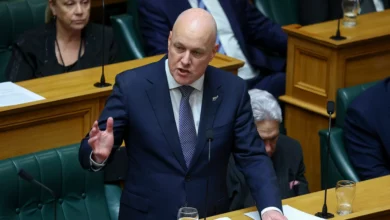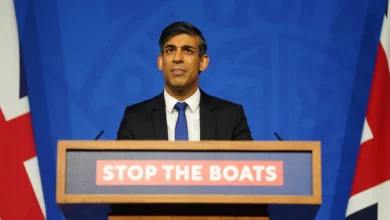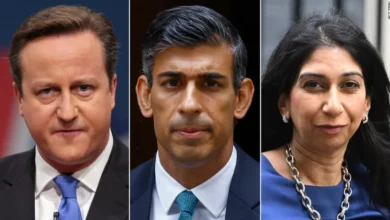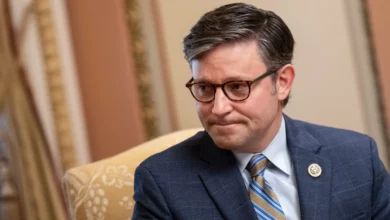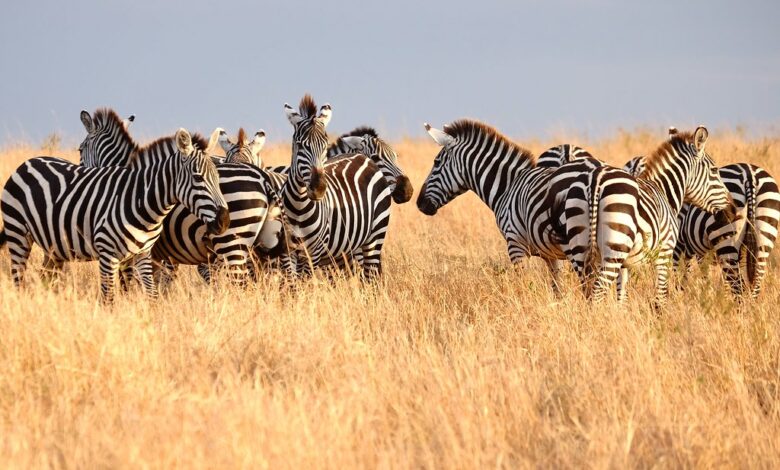
It was a most pleasant invitation.
Sam (Samir) Metaini, a classmate and now a history professor at the University of Nevada was visiting Egypt and invited me to a roundtable discussion. The get-together included friends as well as a group of young university graduates from Egypt and the US.
Sam’s a special friend, so I made the extra effort.
Planning for Cairo traffic, I arrived downtown on time at four pm at the Diplomatic Club. The event was hosted by another dear friend, retired Ambassador Ahmed Soliman, a geopolitical veteran, having served in both the East and the West.
A significant crowd — more than thirty — had assembled before I entered the large, well-appointed conference room on the third floor. I circled a large square table with an eye-catching floral centrepiece looking for Sam and Ahmed, when I felt a tap on my shoulder. It was another classmate, Aly Shakankiri with his wife, Mona. She had been with us at university, but two years younger.
A happy surprise, Aly had been living in the UK for more than fifteen years and, I knew, had an established global business there.
An early investor in Amazon in 1996 when he visited Bellevue, Washington, Aly had urged many of his friends, myself included, to invest in Amazon. Back then I was entirely focused on my business in Egypt and other emerging
markets — the Czech Republic, Slovakia, Tunisia etc.
Sadly, I did not take his advice.
Aly, never casual, sported a double-breasted navy suit with a white French cuff shirt, large sapphire cufflinks, and a
crimson tie. Mona wore a beige two-piece with an eye-catching pharaonic necklace and a heart-warming smile.
As we renewed our bonds, Sam and Ahmed joined us. A buffet with coffee, tea, juices, cakes and biscuits lured us.
Standing there was Amr Hashem, another long-standing friend who owned the largest hospitality company in Egypt
along with a dozen hotels in Cairo, the Red Sea, and the Mediterranean.
Amr, a glass of orange juice in his hand, was smartly attired in a casually open blue shirt, round glasses, and a lot of hair gel.
Energetic as always, he greeted us all warmly and introduced a lady beside him as Soha Ramadan. Soha, tall and elegant in a colorful blouse and blue Ralph Lauren jacket, had long hair and wore high heels. She grasped everyone’s hand and introduced herself.
Soha was an experimental psychology major, had studied anthropology and sociology, and was now doing research in Upper Egypt.
The square hollow table was filling fast, and two young alumni came over to the buffet. The first one introduced himself as Rafaat Ibrahim, originally from Tanta, Egypt’s fifth largest populated city located between Cairo and Alexandria.
He was a computer engineer working for the Alexandria Port Authority. The second alumnus, a businesswoman running a service company, was Tamara Mohsen from Mansoura, capital of the Dakahlia Governorate.
After a few minutes of general conversation, Sam called the meeting to order. I took a cup of tea and two cinnamon
biscuits from the buffet. As I took a seat, I noticed a banner behind the speakers’ podium: “Egypt: Today and Tomorrow.’
Sam explained, as a historian born in Egypt and living abroad, that he still has deep roots here and wanted to learn
more. That is why he organized this event – to hear from young Egyptians in their twenties and thirties on their
country’s status quo and learn their insights about the future.
He thanked Ambassador Soliman for hosting the event and passed the microphone to the moderator.
The moderator introduced herself as Hend — no second name given —a TV presenter, graduate of media studies and marketing, and an Egyptian-American national. She kicked off the meeting with questions that engaged the audience.
The questions, answers, and comments were flowing rapidly, which reminded me of piranhas feasting:
- “How do you see Egypt’s economy?”
- “Is Egypt safe from regional disruption?”
- “What about the Nile River and challenges from Ethiopia?”
- “The large transformational infrastructure initiated by President Sisi?”
- “Is the educational platform in Egypt ready for the future?”
- “How can health services be improved?”
Hend would ask the question, and in rapid machine-gun style would call on the participants to respond and engage.
The discussion got heated at times as the participants offered their energetic views and loud suggestions.
We, the older generation, remained silent, listening and learning, at times awed by the participants’ maturity and other times disappointed at their lack of vision.
Two hours flew by and the roundtable discussion closed with more questions than answers, but it was undoubtedly a great and positive exercise as we saw the young generation of Egyptians and Egyptian-Americans continue the debate as they were leaving.
Ahmed invited us to a second helping at the buffet. This time I took a cup of coffee and a slice of cake to which I added some jam.
The older generation, three younger participants and the moderator joined us for an after-event discussion.
Aly, disappointed that many issues about foreign direct investment were not raised, explained he wanted to invest
US$25 million in a chemical industry near Ain al-Sokhna, but he gave up in the face of endless approvals, incredible paperwork, and multiple ministers involved.
The cherry on top was when his partner, a Pole, had to go through a long and tedious security check.
Amr smiled: “I fully appreciate your concern. I suffer in a different way in the hospitality sector where I must get approval from the Tourist Police 72 hours in advance for any tourists requesting hospitality arrangements, guides, special visits, and transportation. One of many burdens, not mentioning the quandaries of owning hotels and dealing with the health, sanitary and local authorities.”
Mona interjected: “Are you both not being harsh? Egypt has over 100 million people and strict regulations are needed.”
Sam responded: “Regulations are needed – we have them in America – but when they become impediments, they must be removed.”
He looked at Ahmed and asked how many tourists come to Egypt.
Ahmed answered: “Close to five million people.”
Soha replied: “Nowhere near our potential — Spain gets 60 million and Czech Republic gets 20 million, and neither of those countries have a tenth of Egypt’s historical attractions.”
Writing in a notepad, Sam asked again: “What about foreign direct investment? How much does Egypt get?” Raafat said quietly: “Not much at all.” Tamara, in a more commanding voice, said: “Egypt receives less than five billion dollars a year. A mere pittance,” she added, and with a flourish of her right arm said: “We need 20 billion at a minimum.”
Aly was nodding and Sam, still scribbling in his notepad, looked up and asked Tamara what the problem was. Hend, the moderator, jumped in and said: “All of you know the problem — we have a severely dysfunctional social contract, causing total ineptness in our government executive.” Hend continued:
“Endless approvals needed for everything — for setting up a company, opening a bank account, issuing a commercial register, paying taxes, registering assets, etc etc… These are all nightmare activities that take time and incredible patience.”
Hend went on: “Nasser’s social contract was — you were born and entitled to free healthcare, free education, guaranteed government job and subsidized food, energy and services. Your cost was that the state had your vote. This social contract needs to be buried and a new one born for the 21st century based on competition, discipline and team work.”
Tamara, not happy about being interrupted, tapping her fingers on her thigh, said that whilst Hend was right, the fact
of the matter remained that in all aspects of society we have declined in performance, much worse since the accursed, so-called Arab Spring.
Both Amr and Soha physically moved forward in their seats to respond, but Soha got her words in first: “Both Hend and Tamara are right. Whilst Sisi is rebuilding the physical infrastructure at lightning speed, we need to rebuild the human society.” Amr added: “It is not only upbringing and education, but also the need for a political message.”
Ahmed, expressionless, broke his silence: “What do you mean a political message?”
Amr stood up and said that at all the top levels of the government and the political echelons the message must be
“We are one Egypt – we stand as one and fall as many.”
Still standing and with significant passion, Amr continued: “The message from the top must come in torrents that urge cooperation, efficiency, trust, honesty, discipline, conviction in Egypt’s greatness and potential, and that we all work toward its success.”
His voice had risen, and you could see his deep conviction. As he paused, you could see emotion in his eyes as he went to refill his orange juice one more time.
I filled the silence: “I lived during the defeat of the 1967 war when all global think tanks and international global war study institutes said Egypt cannot cross the canal where Israel had occupied Sinai. Israel built a pipeline across the east border of the canal to release napalm in the canal and start a blaze at a touch of a button if Egypt dared to send troops across. As if that was not enough, Israel built a 35-foot sand bank at the eastern shore of the canal, supported by artillery.”
I explained that, according to American and European military experts, the best estimate for casualties Egypt would
pay if it dared to cross was 100,000 troops.
“We crossed the canal and lost 2,000 brave soldiers. Vision, courage, discipline, and innovative execution was the answer. Moreover, Egyptian divers blocked the napalm pipe openings with cement. Using specially built high pressure pumps, Egyptian commandos opened gaps in the sand trap as military engineers built floating pontoons to allow for tanks and troops to cross, which they did. All of Sinai today is liberated and 100 percent Egyptian,” I concluded with a flourish.
I looked at Soha whom I did not know before this meeting and asked: “As a sociologist and psychologist, can you tell me why we are not today as we were in 1973?”
Soha looked at me somewhat astonished and calmly answered:
“The answer to your query is long and complicated, but the short answer is that the president and the minority have the vision, the president has the courage. However, today we have no discipline and very little innovative execution which sadly keeps us struggling against deep-thrusted ignorance and lack of knowledge.”
Sam asked: “Any solutions?”
I smiled and responded that we must start with the zebras.
Some people smiled and others looked awkwardly at me. Mona looked at me with widened eyes, as if I was suffering from sunstroke. Sam stared straight at me and asked me to explain what I meant – after all, Egypt has no zebras.
“On the contrary,” I said.
“We have a huge number of zebra crossings at every road, city highway, and ring road, but they
are all ignored. I believe that no democracy can rise without stability and security, and no country can rise without
discipline. Our roads speak volumes, but nobody is listening.”
I explained that the day all pedestrians and drivers respect zebra crossings will be the day a vision has the opportunity to be implemented. “Without that,” I added seriously, “we will continue to have half-baked solutions or worse.”
“Yes,” Tamara interjected, “We built great highways but we have rubbish on the pavements, we plant trees but we do not water them, we try to digitize government services but there are no capable or trained staff to run them.” She sighed and added that we build amazing structures but we don’t maintain them.
“Discipline is indeed needed.”
Ahmed, fidgeting and looking and his watch, joked: “So the problem is with the zebras?”
I responded that this is just the starting point because without the key tool to start the engine, we are spluttering, and time is not on our side.
Sam stood, notepad in hand, and said: “I learnt a lot today and, as was reflected in the roundtable, there 1s a lot of energy in the next generation. That is the good news,” he said,
looking at Rafaat, Tamara, and Hend. “The bad news is that there is no discipline and no compass.” With a smile, he added: “A lot of zebras need to be respected.”
Aly and Mona stood to the side talking to Amr and Soha.
Ahmed was settling some organizational issues with the club’s staff, and the three young ones surrounded Sam. I waved at Sam and pointed to my cell phone, signalling that I would call him.
As I was getting in my car and driving home, I truly felt burdened that we could not see the zebras and respect them as a launching point for discipline and its benefits, as without discipline, the tide is against us.
Passing a toll station heading to my home I remembered what Lee Kuan Yew, former prime minister of Singapore said: “A nation is great not by its size alone.” Egypt is physically as big as France and has a population of 107 million — but it is “the will, the cohesion, the stamina, the discipline of its people” that creates success.
About the author
M. Shafik Gabr is a renowned leader in international business, innovation, investment and one of the world’s premier collectors of Orientalist art, and an accomplished philanthropist.
During his career, Gabr established over 25 companies plus three investment holding companies including ARTOC Group for Investment and Development which, established in 1971, is a multi-disciplined investment holding company with businesses in infrastructure, automotive, engineering, construction and real estate, over the past three years focusing on investment in technology and artificial intelligence.
Gabr is the Chairman and a founding member of Egypt’s International Economic Forum, a member of the International Business Council of the World Economic Forum, a Board Member of Stanhope Capital, an International Chairman of the Sadat Congressional Gold Medal Committee, and a Member of the Parliamentary Intelligence Security Forum. Gabr is a Member of the Metropolitan Museum’s International Council and serves on the Advisory Board of the Center for Financial Stability, the Advisory Board of The Middle East Institute, and the Global Advisory Council of the Mayo Clinic.
Through the Shafik Gabr Social Development Foundation, Gabr is helping to improve elementary-school education in Egypt, introducing students to arts and culture and promoting sports and physical fitness for youth. The Foundation has its first Medical and Social Development Center in Mokattam, Cairo, offering free medical and health services. In 2012 Gabr established in the US the Shafik Gabr Foundation which supports educational and medical initiatives plus launched in November 2012 the ‘East-West: The Art of Dialogue initiative promoting exchanges between the US and Egypt with the purpose of cultural dialogue and bridge-building.
Gabr holds a BA in Economics and Management from the American University in Cairo and an MA in Economics from the University of London.

